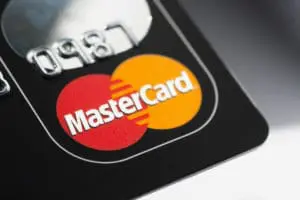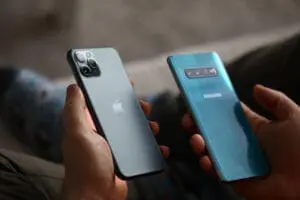Barclays wins legal case to avoid liability for a £700,000 authorised push payment scam
The Supreme Court has dealt a blow for consumers following its decision that banks are not liable to reimburse victims of authorised push payment fraud.
Authorised push payment (APP) fraud is where a fraudster tricks you into transferring money from your account into an account controlled by the fraudster. Over £485 million was stolen from more than 100,000 people this way in 2022.
A legal claim was brought against Barclays by one of its customers – Fiona Philipp – who sued the bank after she and her husband were tricked by scammers into transferring £700,000 from her account into two bank accounts in the United Arab Emirates.
The scammer posed as somebody working on a high-profile fraud investigation being run by the Financial Conduct Authority and the National Crime Agency. Philipp claimed Barclays was responsible for the loss because the bank had reasonable grounds to suspect the transfer was fraudulent and so was in breach of its duty of care for not withholding her payments.
Philipp had appealed after a High Court judge ruled in 2021 that Barclays was not liable for the loss. Barclays today won the UK Supreme Court appeal against this early judgement. The court recognised the hardship for victims of frauds like this but said it was a matter for parliament to consider who should bear the losses.
Supreme Court Judge George Leggatt said:
‘Where the customer has authorised and instructed the bank to make a payment, the bank must carry out the instruction promptly. It is not for the bank to concern itself with the wisdom or risks of its customer’s payment decisions.’
A ruling in favour of Philipp would have given other victims of APP fraud the chance to make compensation claims from their banks.

Better protections needed for blameless victims
Consumer group Which? was disappointed by today’s judgement and said it was a ‘missed opportunity to enhance consumer protections against bank transfer scams and put in place better systems to protect their customers.’
Consumer groups and politicians have been campaigning for better protections for victims of frauds like this. The Financial Services and Markets Act 2023, which received Royal Assent on 29 June, includes reforms that will leave victims of APP fraud better protected.
Rocio Concha, Which? Director of Policy and Advocacy, said:
‘Which? campaigned for the Financial Services and Markets Act, which will ensure all banks treat victims of authorised push payment fraud more fairly and consistently. However, its protections do not apply to victims who send money abroad, as in this case, nor does it give them the right to redress in court.’
‘Banks should do the right thing by their customers and proactively extend enforceable reimbursement to all payments, and government and regulators should act to close any loopholes to ensure all scam victims have equal and effective protection.’
The Supreme Court has said Philipp can pursue a separate case to investigate whether Barclays failed to recall the payment quickly enough.
How to get your money back after a bank transfer scam
If you think you’ve been scammed like this then get in touch with your bank immediately. If you act quickly enough your bank may be able to recover your money.
New rules will mean banks have a responsibility to better prevent fraud like this and protect customers. The Financial Services and Markets Bill gives the Payment Systems Regulator more powers to direct banks to reimburse customers. These powers will come into force in 2024.
If you can’t recover your money from your bank then you could refer your complaint to the Financial Services Ombudsman. Although the law won’t necessarily mean your bank is liable for a loss you’ve authorised, there are situations where your bank shouldn’t have taken your authorisation at ‘face value’, and the Ombudsman will take this into account.
Related claims

Mastercard
Mastercard is accused of owing up to £10bn to 46m UK shoppers. Sign up to stay updated – you could be owed money whether you had a Mastercard or not.

JLR
Jaguar Land Rover faces a legal battle over complaints that faulty parts are impacting the reliability of a range of its diesel cars. Sign up to the claim.

Qualcomm
Global chip manufacturer, Qualcomm, is accused of overcharging for its smartphone technology and owing users £480m. Sign up to stay updated.


